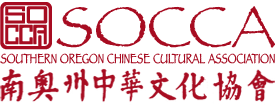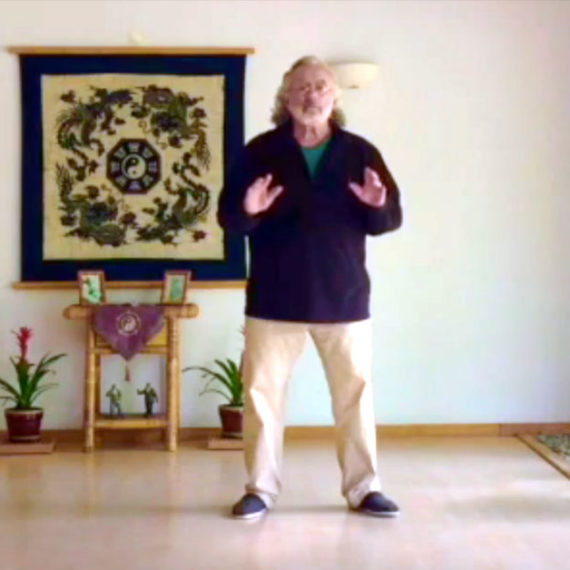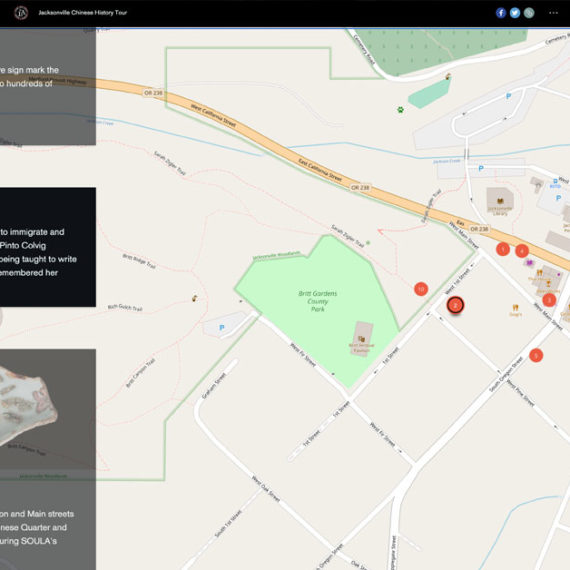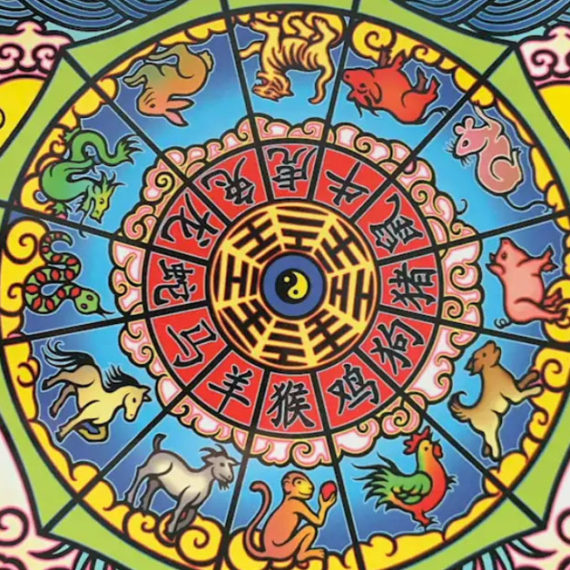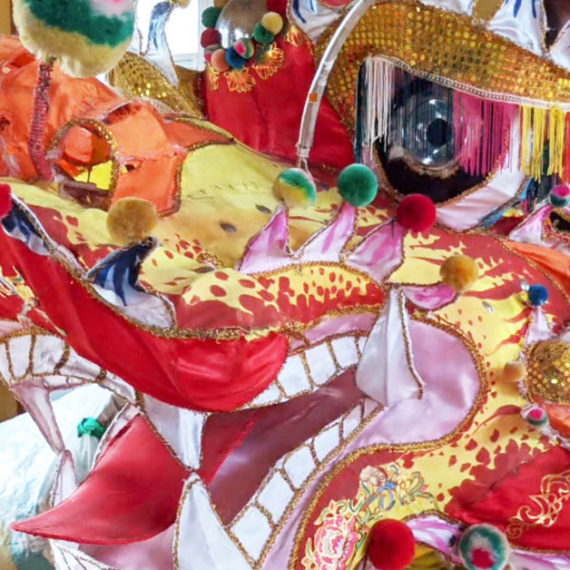 ';
zoom
';
zoom
Introducing the Ancient Chinese Healing Arts of Tai Chi and Qigong
What are Tai Chi and Qigong?
 Qigong – Pronounced “Chee -gung” is a way of cultivating “life force” energy for health, healing, strength, martial arts and peace of mind. Practice of Qigong in China predates written history and is part of Traditional Chinese Medicine. Qigong exercises are typified by repetitious movements that move energy through the body in specific ways. Breathing is usually slow and deep and the mind is calm and present. Qigong exercises are not physically difficult to do and can be practiced sitting, standing or walking.
Qigong – Pronounced “Chee -gung” is a way of cultivating “life force” energy for health, healing, strength, martial arts and peace of mind. Practice of Qigong in China predates written history and is part of Traditional Chinese Medicine. Qigong exercises are typified by repetitious movements that move energy through the body in specific ways. Breathing is usually slow and deep and the mind is calm and present. Qigong exercises are not physically difficult to do and can be practiced sitting, standing or walking.
Tai Chi – Pronounced “Taiji” means “Supreme, ultimate balance and harmony.” Originally a martial art based on Qigong and Taoist principles, now practiced everyday by many millions of people around the world for its benefits of health and vitality. Its typified by slow, relaxed movements with a specific choreography. State-of-mind is relaxed, open, accepting and present . . . often referred to as “meditation in motion.” Simplified tai chi may have as little as 4 movements (or postures), “long forms” may have 108 or more.
Note: What has come to be known as the yin-yang symbol in the west, is called “Tai Chi” in China. It represents opposites in balance and harmony.
Health Benefits of Tai Chi
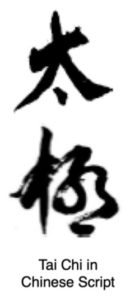 Like other complementary and alternative practices that bring mind and body together, Tai Chi can help reduce stress, anxiety and depression – western medicine claims that 70% of all ailments are either caused by or exacerbated by stress.
Like other complementary and alternative practices that bring mind and body together, Tai Chi can help reduce stress, anxiety and depression – western medicine claims that 70% of all ailments are either caused by or exacerbated by stress.
During Tai Chi, you focus on movement and breathing. This combination creates a state of relaxation and calm. Stress, anxiety and tension should melt away as you focus on the present, and the effects may last well after you stop your tai chi session. Tai chi also might help your overall health, although it’s not a substitute for traditional medical care.
Despite its long history, Tai Chi has been studied scientifically only in recent years. More research is needed, but preliminary evidence suggests that Tai Chi may offer numerous benefits beyond stress reduction. Here’s a partial list of health benefits from the Harvard Medical School and the Mayo Clinic:
- Improves balance, flexibility, muscle strength and coordination – reduces falls TWICE as effectively as other therapies.
- Improves sleep quality
- Lowers blood pressure and cholesterol
- Improves cardiovascular fitness (has been proven to be aerobic)
- Helps relieves chronic pain like arthritis
- Improves cognitive functions
- Treats Type 2 Diabetes
- Reduces bone loss rate in postmenopausal women by 300%.
- Relieves Fibromyalgia symptoms, such as muscle pain, fatigue, and insomnia.
- Builds strength, flexibility and a feeling of well-being in cancer survivors.
- Boosts immune system resistance to viral infections by 50%
- Reduces anxiety, depression, mood disturbance
- Improves Motor Skills in Parkinson’s Patients. • Reduces insomnia and sleep disorders
- Treats asthma, and improve breath capacity
- Treats ADHD
- Improves everyday physical functioning
- Increases energy, endurance and agility
It’s important to note that these medical studies were done with people who were new to tai chi. That’s good news – you don’t need to be an expert before you enjoy the health benefits.
Gradual health benefits begin almost immediately. You do however, need to do yourTai Chi 3-5 times a week. That’s how frequently the people in the tests did their practice. Most of the tests were 1-2 years in duration.

Tai Chi and Qigong Resources
There are many qualified Tai Chi teachers in Southern Oregon but as you might imagine, because of COVID19 most are not currently conducting in-person classes.
If you are interested in in-person classes at this time, here are a few places you might contact:
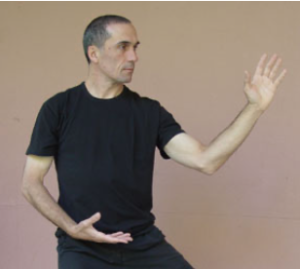 Gene Burnett teaches private lessons outdoors in Ashland with plenty of distance.
Gene Burnett teaches private lessons outdoors in Ashland with plenty of distance.
Phone: 541-482-2053
Email: Mail@GeneBurnett.com
Web URL: www.GeneBurnett.com
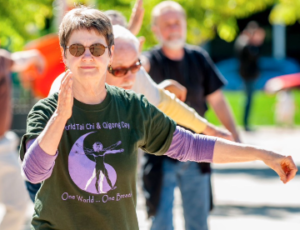 Carolyn Wolf teaches outdoor beginning Tai Chi classes (weather permitting) in the Medford, Central Point and Jacksonville area. Email her at carwolf@sonic.net, or text: 541-499-1539
Carolyn Wolf teaches outdoor beginning Tai Chi classes (weather permitting) in the Medford, Central Point and Jacksonville area. Email her at carwolf@sonic.net, or text: 541-499-1539
Medford Parks and Recreation has face-to-face classes listed in their Winter/Spring 2021 Catalog.
If you’re anxious to begin enjoying the many health benefits of Tai Chi and Qigong (New Year’s Resolution), online classes might be your best bet until distancing and outdoor restrictions ease. COVID19 has driven many Tai Chi teachers to offer Zoom practices. An online search will yield many study opportunities. Here are a couple of local Tai Chi & Qigong teachers who are giving online practices.
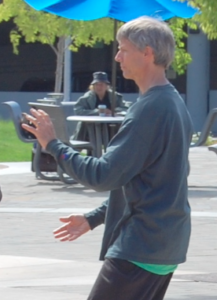 Nando Raynolds
Nando Raynolds
Class/Event Name: Mindful Movement and Somatic Meditation. Online on Zoom. Privately and through OLLI Phone: 541-821-6623
Email: nando@mind.net Web URL: nando-r.com
Estin Kiger
Class Name: Pondhouse Online Qi Gathering FREE Zoom Tai Chi & Qigong Practices featuring exercises specific to enhancing immune system and lung function (Wednesdays and Saturdays 10:30-11:30 AM Pacific)- No experience necessary. If you would like a link to the these live sessions, please email me at estinstaichi@mac.com you may also visit our website estinstaichi.com
This short video features World Tai Chi and Qigong Day in Medford. An annual event lead by Estin Kiger will probably be held online.
2 easy do-along Tai Chi videos
This short video features a simple follow-along basic Tai Chi form based on evidence based movements used in current Tai Chi research. It can be done sitting or standing.
This video is a recording from one of our FREE informal weekly on-line practices. Slow, relaxed movements and breathing exercises are designed to improve immune system and lung functions for maximum resistance and enhance general health. Suitable for all levels and all ages. Beginners welcome. Can be done sitting or standing.
